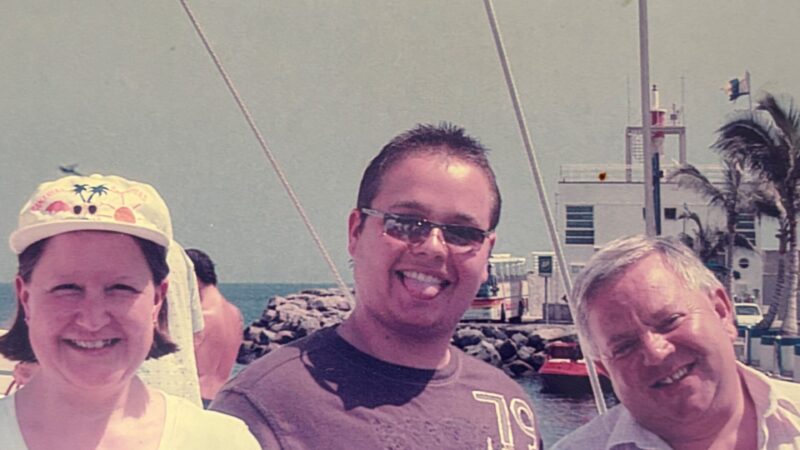
Christopher Birch was referred to the Hospital @ Home frailty team on 5 March 2025 following a sudden worsening of his symptoms — severe oedema, increased ascites, and a critical deterioration in his heart failure. He was already living with multiple complex health issues, including stage four right-sided heart failure, and used a continuous positive airway pressure machine at night to help with breathing. But this time, things were different. He was in a bad way — and he knew it.
“I didn’t want to go to hospital,” he said. “I was frightened I wouldn’t come out again.”
Hospital @ Home enables patients to receive acute care in the comfort of their own homes, avoiding hospital stays that may increase risks like reduced mobility, infections, and delayed recovery. With the right support, patients often recover more effectively at home.
When the team first arrived, Christopher was seriously unwell and in significant fluid overload. Hospital admission was recommended — but he refused. For him, staying at home was everything. Respecting his wishes, the team worked quickly and compassionately to stabilise him. With input from a palliative care consultant, they adapted his medication and began a new treatment plan — all delivered in his living room.
“They told us straight — it could go either way. But they never left us wondering, and they never left us alone.”
Between 7 and 25 March, through careful medication management and diuretic adjustment, Christopher lost over 32kg in excess fluid. His breathing improved. His strength began to return. And slowly but surely, hope crept back in.
“It just felt more human,” he said. “They talked to me like a person, not a patient. They were calm, kind, and so good at what they do. I actually felt I could help them help me.”
“They looked after all of us”
Christopher’s wife Susan was by his side throughout — and the relief of being able to stay at home was felt by the whole family.
“From the moment they walked in, I thought, ‘this is right.’ They explained everything, they were so gentle. We didn’t have to fight for parking or wait hours in A&E. He was at home, with his dog, his own pillow, and a proper cup of tea. That comfort? You can’t put a price on it.”
Being at home also meant his family could care for him in ways that simply wouldn’t be possible in a hospital — emotionally and practically.
“We’ve seen both sides — acute wards and care at home — and I can say without doubt, people do better in their own surroundings. He felt more like himself. And that helped him heal.”
An exceptional team, at an exceptional time
“They were exceptional,” he said. “The consultant knelt down beside me and looked me in the eye. I’ll never forget that. They saw me, not just my condition.”
Susan adds: “We didn’t feel like just another case. They genuinely cared. They gave us our life back.”
“This kind of care changes everything,” he says. “You keep your dignity. You stay you.”
A word from the team – Dr Lucy Lowery – consultant and clinical lead in specialist palliative care at North Tees and Hartlepool NHS Foundation Trust
“Christopher’s experience highlights the importance of respecting the person’s wishes, and adapting care to their circumstances and values. He was critically unwell when the Hospital @ Home frailty team first met him, but when he declined hospital admission, timely and responsive collaboration between community teams allowed a plan to be established to treat his acute deterioration, whilst simultaneously ensuring symptom management was a priority alongside this. It is an example of what can be achieved safely and effectively in a community setting, and I am delighted with the positive outcome for him.
“His case also demonstrates the value of personalised advance care planning. Christopher and his family have been reassured by the completion of an emergency healthcare plan detailing how to treat future decompensations in his heart failure including: what he and his family should look out for, and who they should contact. I feel extremely proud that, alongside many other community colleagues, we were collectively able to support Christopher in his own home, where he wanted to be, and felt most safe and secure.”
What he wants others to know
Christopher knows not everyone will feel confident refusing hospital admission — but he hopes others know they may have a choice.
“If you’re unsure, ask. This service saved me. It gave me a chance when I thought I didn’t have one. And it gave my wife peace, which meant the world.”
How to refer
If you’re working in the Trust and think a patient might benefit from the virtual frailty ward, you can refer through your local GP, discharge team, or community services.